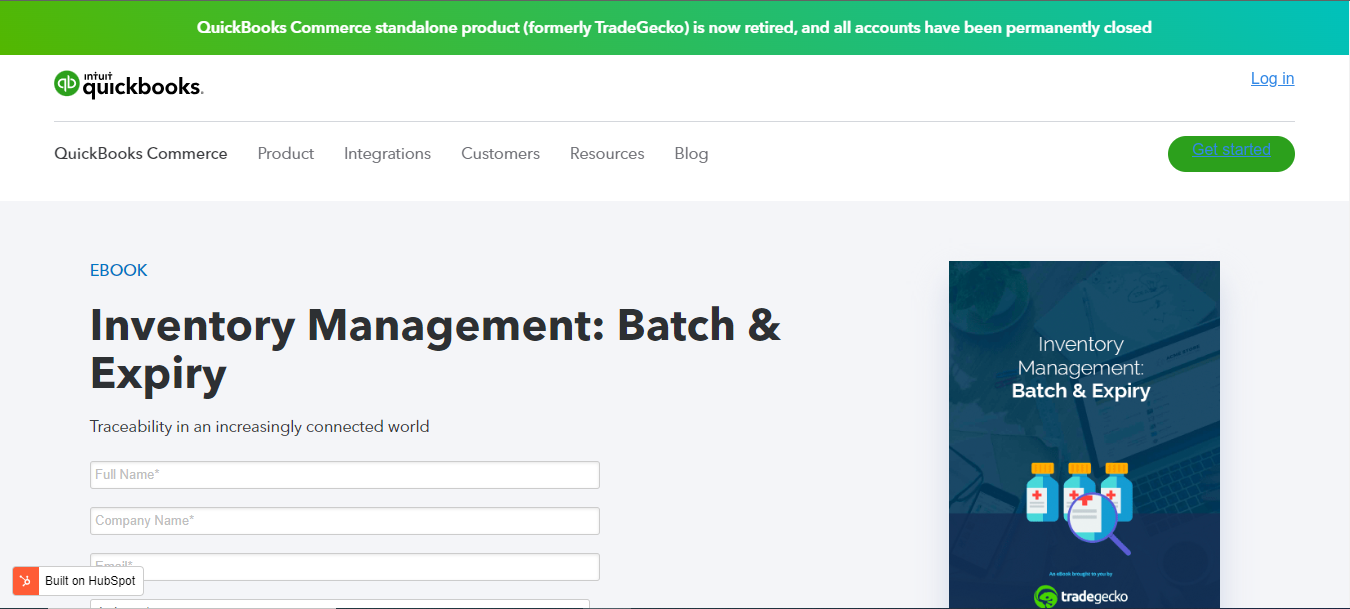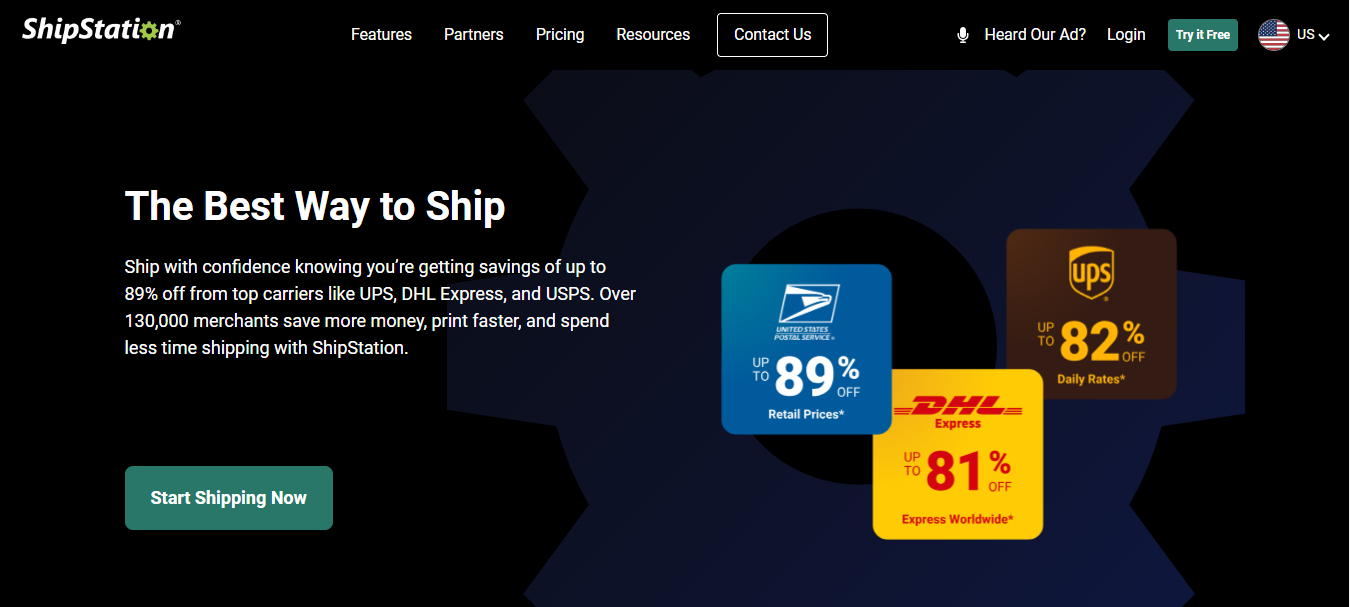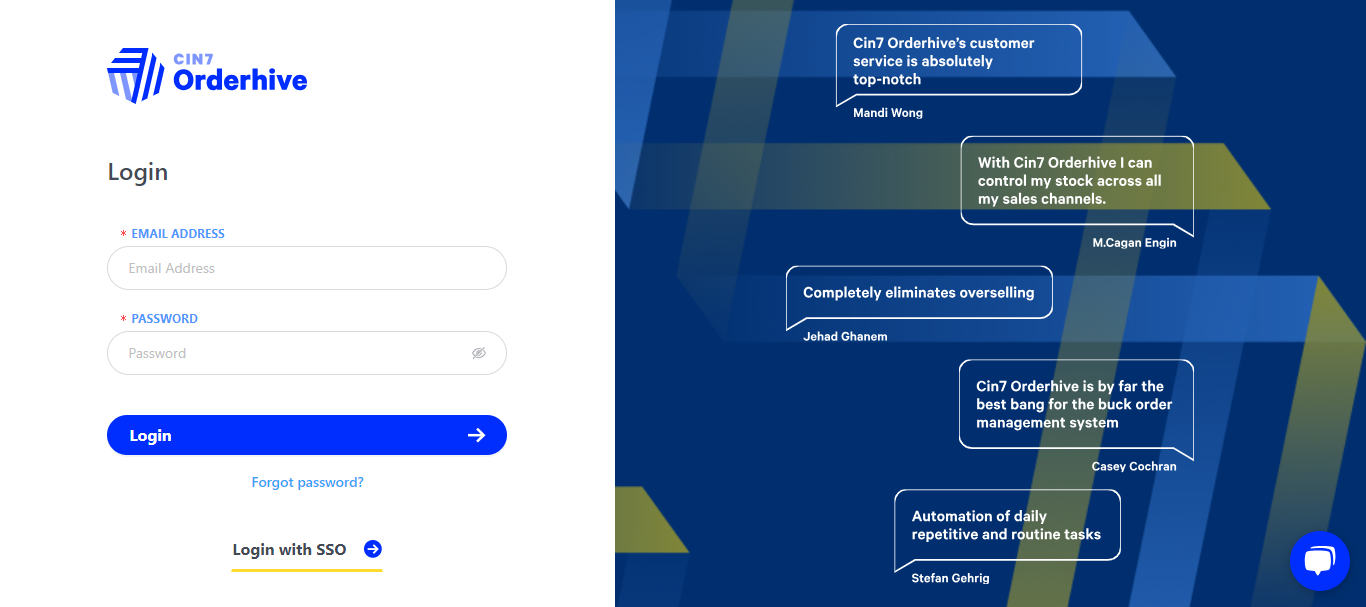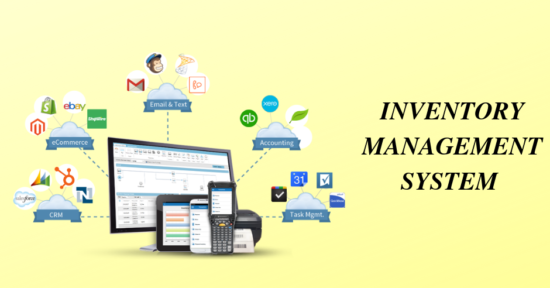In the ever-evolving landscape of eCommerce, effective inventory management is a cornerstone for success. As online businesses strive to meet customer demands, minimize stockouts, and optimize their supply chains, the role of inventory management software becomes increasingly vital. In this article, we delve into the world of eCommerce inventory management and explore the top 5 software solutions that promise to streamline online store operations.
What Is Inventory Management Software for eCommerce?
Inventory Management Software for eCommerce is a specialized digital solution designed to revolutionize and optimize the intricate process of managing product inventory for online retailers. In the dynamic realm of eCommerce, where the landscape is characterized by rapid changes in customer demands, fluctuating market trends, and an ever-expanding array of products, this software serves as a robust and adaptive tool. It goes beyond traditional inventory tracking methods by providing a centralized platform where businesses can efficiently monitor, control, and streamline their inventory operations.
This software is engineered to tackle the unique challenges that eCommerce businesses face, such as the need for real-time updates, accurate stock level tracking, and integration with various eCommerce platforms. By leveraging features like order processing, demand forecasting, and integration capabilities, Inventory Management Software for eCommerce acts as a pivotal component in the overall operational efficiency of online retailers. It empowers businesses to transcend the limitations of manual inventory management, ensuring accuracy, agility, and a competitive edge in the dynamic eCommerce landscape.
Benefits Of Using Inventory Management Software for eCommerce
1. Real-Time Inventory Visibility
Inventory Management Software for eCommerce brings forth the invaluable benefit of real-time inventory visibility. In the fast-paced world of online retail, the ability to have instantaneous insights into stock levels and product availability is a game-changer. This feature significantly minimizes the risk of overselling or stockouts by providing continuous updates on inventory status, enabling businesses to make informed decisions and maintain seamless order fulfillment.
2. Order Accuracy and Fulfillment
A fundamental advantage of employing Inventory Management Software in eCommerce lies in the enhancement of order accuracy and fulfillment processes. By streamlining order processing, businesses can reduce errors in fulfillment, ensuring that the right products reach the right customers in a timely manner. This not only improves customer satisfaction but also contributes to the establishment of a positive brand reputation.
3. Optimized Stock Control
Efficient stock control is a cornerstone of successful eCommerce, and Inventory Management Software plays a pivotal role in achieving this optimization. Through features like automated reorder points, businesses can prevent stockouts and overstock situations. The software empowers retailers to strike a delicate balance between maintaining sufficient stock levels to meet customer demands and minimizing holding costs associated with excess inventory.
4. Enhanced Efficiency and Time Savings
Inventory Management Software for eCommerce introduces a paradigm shift by automating routine tasks, leading to enhanced efficiency and substantial time savings. By automating order processing, inventory tracking, and related operations, businesses can redirect their resources toward strategic decision-making and other aspects of business growth. This newfound efficiency contributes to a more agile and responsive approach to overall eCommerce operations.
5. Data-Driven Insights
One of the significant benefits of employing Inventory Management Software is the access to data-driven insights. Through robust analytics and reporting tools, businesses can gain comprehensive insights into their sales trends, stock performance, and overall operational efficiency. This data-driven approach empowers eCommerce retailers to make informed decisions regarding product assortment, pricing strategies, and promotional activities, aligning their business strategies with market dynamics.
The Top 5 Inventory Management Software for eCommerce
1. TradeGecko

TradeGecko stands as a robust cloud-based inventory management solution tailored to meet the diverse needs of eCommerce businesses. With an emphasis on versatility, TradeGecko offers a comprehensive suite of tools that extends beyond traditional inventory management. At its core, the software allows businesses to effortlessly track and manage their product inventory in real-time, ensuring accurate stock levels and minimizing the risk of overselling or stockouts.
TradeGecko’s multi-channel selling capabilities set it apart by seamlessly integrating with various sales channels, providing users with centralized control over their eCommerce operations. The software’s order fulfillment features automate and streamline the processing of orders, contributing to efficient and error-free order fulfillment. Furthermore, TradeGecko goes beyond basic inventory control by offering robust demand forecasting tools, empowering businesses to anticipate future demand trends and optimize their stock levels accordingly.
Price: TradeGecko’s pricing starts at $39 per user per month, making it accessible for businesses with varying budgets.
Notable Features
- Multi-Channel Selling: Integration with various sales channels for centralized management.
- Order Fulfillment: Automated order processing and tracking for efficient fulfillment.
- Demand Forecasting: Tools to predict future demand and optimize stock levels.
- B2B eCommerce Platform: Support for wholesale and B2B eCommerce operations.
- Integrations: Seamless integration with accounting, shipping, and eCommerce platforms.
Summary
TradeGecko stands out for its versatility, catering to businesses with diverse needs in the eCommerce space. Its multi-channel selling and robust order fulfillment features make it a valuable asset for growing online retailers.
Watch Out For: Users should assess the specific needs of their business to ensure TradeGecko aligns with their industry and scale.
2. ShipStation

ShipStation, known for its excellence in shipping capabilities, offers a comprehensive inventory management solution designed to streamline eCommerce operations. As a web-based software, ShipStation stands out by providing a user-friendly interface that simplifies the complexities of order fulfillment and inventory control for eCommerce businesses.
At the heart of ShipStation’s detailed overview is its proficiency in order processing. The software facilitates efficient order management through features like batch processing, enabling businesses to handle multiple orders simultaneously. The integration with major carriers is a standout feature, ensuring seamless collaboration with shipping partners for efficient and reliable shipping solutions.
Price: ShipStation’s pricing starts at $9 per month, providing scalable options for businesses of different sizes.
Notable Features
- Order Processing: Efficient order management and batch processing for multiple orders.
- Shipping Integration: Seamless integration with major carriers for simplified shipping.
- Inventory Tracking: Real-time tracking of stock levels and SKU management.
- Automation Rules: Customizable rules for automating order and shipping processes.
- Reporting and Analytics: Tools for analyzing shipping costs and order trends.
Summary
ShipStation excels in simplifying the shipping and inventory management aspects of eCommerce. Its user-friendly interface and integration capabilities make it a go-to solution for businesses seeking efficient order fulfillment.
Watch Out For: While ShipStation is strong in shipping, users should ensure its inventory features align with their specific requirements.
3. Orderhive

Orderhive emerges as an all-in-one inventory management software designed to cater to the diverse needs of eCommerce businesses. Offering features that span order processing, inventory control, and integration with various eCommerce platforms, Orderhive positions itself as a comprehensive solution for businesses seeking efficiency and automation in their operations.
A standout feature of Orderhive is its multi-channel integration capabilities, providing businesses with centralized control over multiple sales channels. This centralized management extends to real-time inventory tracking, automatic stock updates, and efficient backorder management. Orderhive’s order automation features streamline order processing, reducing the need for manual intervention and enhancing overall operational efficiency.
Price: Orderhive’s pricing starts at $44.99 per month, providing a scalable solution for businesses with diverse needs.
Notable Features
- Multi-Channel Integration: Centralized management of multiple sales channels.
- Inventory Control: Real-time tracking, automatic stock updates, and backorder management.
- Order Automation: Automated order processing, reducing manual intervention.
- Warehouse Management: Tools for managing multiple warehouses and optimizing stock placement.
- Reporting and Analytics: Data-driven insights for informed decision-making.
Summary
Orderhive’s comprehensive approach to inventory management makes it a valuable asset for eCommerce businesses. Its focus on automation and multi-channel integration enhances operational efficiency.
Watch Out For: Users should assess their scalability needs and ensure Orderhive aligns with their growth trajectory.
4. Zoho Inventory

Zoho Inventory, part of the broader Zoho suite of business tools, presents a feature-rich inventory management solution tailored for small and medium-sized eCommerce businesses. At its core, Zoho Inventory aims to streamline order fulfillment, stock control, and related operations through an intuitive and user-friendly interface.
A key aspect of Zoho Inventory’s detailed overview is its order processing capabilities. The software simplifies order management with features like batch processing, allowing businesses to handle multiple orders simultaneously. Zoho Inventory’s real-time inventory tracking ensures that businesses have accurate and up-to-date insights into stock levels, contributing to timely and error-free order fulfillment.
Price: Zoho Inventory’s pricing starts at $39 per organization per month, providing affordability for small businesses.
Notable Features
- Order Processing: Streamlined order fulfillment with integrated shipping solutions.
- Multi-Channel Selling: Integration with popular eCommerce platforms for centralized management.
- Barcode Scanning: Efficient stock management through barcode scanning technology.
- Automation: Workflow automation for repetitive tasks, saving time and reducing errors.
- Mobile Accessibility: Managing inventory on the go through mobile applications.
Summary
Zoho Inventory’s integration capabilities and automation features make it a compelling choice for small and medium-sized eCommerce businesses. Its accessibility through mobile applications enhances flexibility for users.
Watch Out For: Businesses with complex inventory needs may need to assess whether Zoho Inventory provides the required depth of features.
5. Skubana

Skubana distinguishes itself as a comprehensive eCommerce operations platform, encompassing inventory management, order processing, and analytics. As a cloud-based solution, Skubana is designed to centralize and optimize various aspects of eCommerce operations for businesses of all sizes.
At the heart of Skubana’s detailed overview is its emphasis on centralization. The software provides a centralized platform for managing multi-channel inventory, enabling businesses to monitor and control stock levels across various sales channels in real-time. This centralized approach extends to order processing, allowing businesses to streamline order fulfillment and reduce manual errors through features like automated order routing.
Price: Skubana’s pricing is based on a custom quote, allowing businesses to tailor the solution to their specific needs.
Notable Features
- Order and Inventory Management: Centralized control over orders and inventory levels.
- Multi-Channel Selling: Integration with major eCommerce platforms for streamlined management.
- Analytics and Reporting: In-depth analytics for sales, inventory, and supplier performance.
- Demand Forecasting: Predictive tools for anticipating future demand and optimizing stock levels.
- Automated Reordering: Set automatic reorder points to prevent stockouts and ensure optimal stock levels.
Summary
Skubana’s emphasis on centralization and comprehensive eCommerce operations makes it a powerful solution for businesses with a significant online presence. Its analytics and forecasting tools contribute to strategic decision-making.
Watch Out For: As a comprehensive platform, users should evaluate whether Skubana aligns with their overall eCommerce operations beyond inventory management.
Factors To Consider When Choosing Inventory Management Software for eCommerce
1. Scalability
Scalability is a critical factor to consider when selecting Inventory Management Software for eCommerce. Businesses must evaluate the software’s ability to grow alongside their operations. A scalable solution can accommodate an expanding product range, increasing order volume, and evolving business needs without compromising efficiency or requiring frequent migrations to new systems.
2. Integration Capabilities
The seamless integration of Inventory Management Software with existing eCommerce platforms, accounting software, and other essential business tools is paramount. Compatibility ensures a cohesive and streamlined workflow, allowing for efficient data exchange between different systems. Businesses should prioritize software that integrates seamlessly with their existing tech stack to avoid disruptions and ensure a smooth operational transition.
3. Automation Features
The level of automation offered by Inventory Management Software is a key determinant of its effectiveness. Businesses should assess the software’s capabilities in automating critical tasks such as order processing, stock updates, and repetitive operations. Automation not only enhances operational efficiency but also reduces the likelihood of manual errors, contributing to a more reliable and error-free inventory management process.
4. Cost and Affordability
Affordability is a crucial consideration for businesses of all sizes. When evaluating Inventory Management Software, it’s essential to analyze the pricing structure and assess whether it aligns with the budget constraints of the business. While cost is a significant factor, businesses should also weigh the value provided by the software in terms of features, scalability, and long-term benefits.
5. User-Friendly Interface
The user-friendliness of the software’s interface directly impacts its adoption and usability. A user-friendly design ensures that the software is accessible to all team members, regardless of their technical expertise. Intuitive navigation and straightforward interfaces contribute to quicker onboarding and smoother integration into daily operations, fostering a positive user experience.
6. Customer Support and Training
Efficient customer support and adequate training resources are pivotal considerations when choosing Inventory Management Software. Businesses should assess the responsiveness and availability of customer support services offered by the software provider. Additionally, the availability of training resources, such as tutorials and documentation, facilitates a smoother onboarding process and ensures that the team can effectively utilize the software’s features.
7. Security Measures
Given the sensitive nature of inventory and order data in eCommerce, prioritizing software with robust security measures is imperative. Businesses should inquire about the security features implemented by the software provider, including data encryption, secure access controls, and measures to safeguard against potential cybersecurity threats. Ensuring the security of sensitive information is paramount to maintaining the trust of customers and safeguarding the integrity of the business.
Conclusion
Efficient inventory management is the backbone of a successful eCommerce business. The right inventory management software can not only prevent stock-related headaches but also contribute to enhanced customer satisfaction and overall operational efficiency. As you explore the top 5 inventory management software for eCommerce—TradeGecko, ShipStation, Orderhive, Zoho Inventory, and Skubana—consider the unique needs and scale of your business. By making an informed choice, you can streamline your online store operations and pave the way for sustainable growth in the competitive world of eCommerce.









